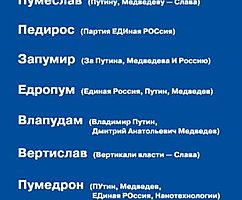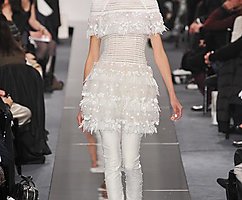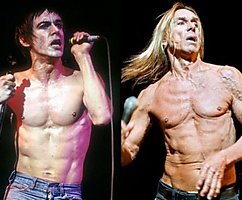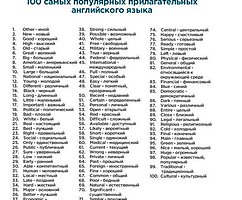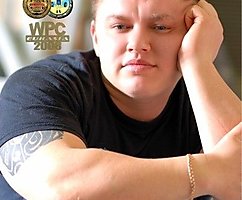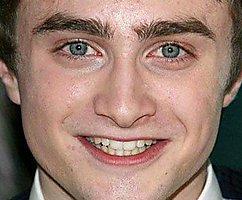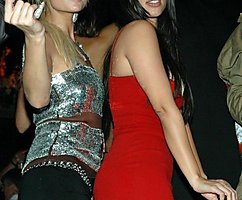35 facts about the heart
 Bashny.Net
Bashny.Net
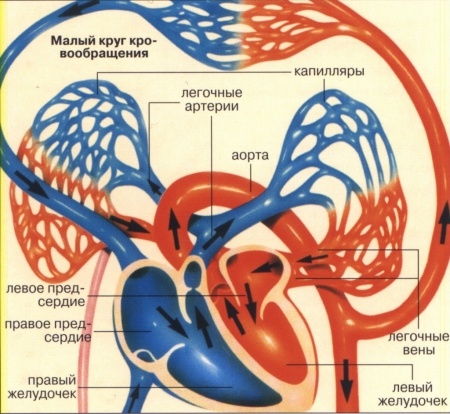
The heart pumps blood, oxygenated, via the aorta (the largest artery in the body) at a speed of about 1 to 6 km / h. By the time when the blood reaches the capillaries, it moves with the speed of 109 cm / hour.
The heart begins to beat in the fourth week after conception, and does not stop until the person dies.
Heart normal adult beats 72 times per minute; 100 thousand times a day; 36 million times a year, and 2, 5 billion times over a lifetime.
Though it weighs only 300 grams, the average healthy heart pumps 2,000 liters of blood through 90,000 kilometers of blood vessels every day.
Water faucet in the kitchen must be enabled, at least 45, to pass the same amount of blood which is pumped through the heart itself for the entire period of life expectancy.
The volume of blood pumped by the heart, can vary from 5 to 30 liters per minute.
Every day, in the heart to spend as much useful energy for pumping blood, it would be quite enough to drive a truck 32 kilometers. And for all my life - this is equivalent to the moon and back.
The heart has its own electrical impulses, ie it can beat even the outside of the body, only on condition that there is an adequate supply of oxygen.
Fetal heart rate 2 times greater than that of an adult person approximately 150 beats per minute. By the time when the fruit reaches the age of over 12 weeks, his heart pumps more than 60 liters of blood per day.
Blood pumped heart irrigates about 75 trillion cells throughout our body. That's just not getting the blood supply to the cornea.
During our lifetime, the heart pumps about 1, 5 million liters of blood, which is enough to fill the tanks of the composition of the 200 tanks.
5% of the total amount of blood currently stored in your heart, 15-20% enters the brain and central nervous system, and 22% goes to the kidney.
"Tum-Tup" - the sound at the close of the four heart valves.
Throughout the life of the heart it makes a lot more physical work than any other muscle. The output power of the heart varies from 1 to 5 watts. While the quadriceps can produce up to 100 watts for a few minutes.
In the body of a newborn baby circulates only one cup of blood. In the circulatory system of an adult, there are more than 4, 5 liters of blood that the heart pumps into all tissues from the lungs in one minute about 75 times.
The ancient Egyptians believed that the heart and other vital organs can be moved at will inside the body.
Plato suggested that the argument - is the work of the brain, but the passion born in the "heart of fire».
The term "heart" has arisen in the philosophy of Aristotle, and means that the heart collects the impulses from all the peripheral organs through the blood vessels. He was one of those members who thought that the thoughts and emotions arise directly from the heart.
Prolonged lack of sleep can cause heart rhythm disturbances, jumping which provokes premature ventricular contraction (PVC).
Some types of heavy snoring can be administered to the patient in a condition called sleep apnea (OSA), thereby leaving an irreversible disastrous consequences for the heart and brain.
Cocaine affects the electrical activity of the heart and arteries causes multiple spasms, which may lead to heart attacks and strokes, even in healthy people.
Galen from Pergamum, a prominent surgeon Roman gladiators, showed that the arteries are filled with blood, not air, as previously suggested by Hippocrates. However, he also believed that the heart acts as a low-temperature oven, which keeps the heat of blood and pumps it out of one of its parts to another through tiny holes.
Galen agreed with Aristotle that the heart - the source of heat in the body, such as "lamp", fueled by the blood from the liver and for alcohol flame fanned the air from the lungs. A brain in his view is simply just to cool the blood.
In 1929, German surgeon Werner Forsman (1904-1979) studied the heart, after procuring arm vein catheter, and Pushing it to 50 centimeters to his heart. So here's the method was invented by cardiac catheterization, is now a common procedure in medical practice.
Dec. 3, 1967, Dr. Christiaan Barnard (1922-2001), from South Africa, transplanted human heart in the body of Luis Vashanski. Despite the fact that the recipient of a donor heart lived only 18 days, the case is considered to be the first successful heart transplant.
"Atrium" in Latin means "entrance" and "ventricle" in Latin means "little belly».
A woman's heart beats a little faster than usual, than men. The average person has a heart rate of 70 per minute, while a woman - almost 78.
When the body is at rest, it is required: just six seconds, so that the blood came from the heart to the lungs and back; eight seconds to find a striker in the brain and back; and only 16 seconds to reach the fingers and back to the heart.
French physician Rene Layens (1781-1826) invented the stethoscope, he felt that he was not quite comfortable leaning his ear to the chest of his bolshegrudaya patients.
Doctor Erasistratus Chios (304-250 g.do BC) was the first to discover that the heart functions as a natural pump.
In the text of his treatise «De Humani Corporis Fabrica Libri Septem», the father of modern anatomy Andreas Vesalius (1514-1564), argued that the blood seeping from one ventricle to the other through the mysterious pores.
Galen said that the blood is produced directly only with the heart. Nonetheless, the discovery William Harvey (1578-1657) of the circular system in 1616 showed that there is a limited amount of blood in our body, and it circulates in only one direction.
The right atrium contains about 3, 5 tablespoons of blood stretcher. The right ventricle is placed a little more than a quarter of a glass of blood. But the left atrium is able to fill the same amount of blood, as a rule, only its walls 3 times thicker.
Take a tennis ball and strongly squeeze it in your hands. That's just in the heart contracts to pump blood.
In 1903, the physiologist Willem Einthoven (1860-1927) invented the electrocardiograph, which measures electrical currents in the heart.
Tags
See also
Facts about the human heart
Interesting facts about blood groups
5 Facts about blood
Heart surgeon Leo Bokeria: Our heart - reliable Swiss watches. But it is necessary to "wound"
The Book of General Ignorance. Part 2 (30 pics)
36 interesting facts about the person
The sense of death
Facts about people
30 interesting but useless facts

